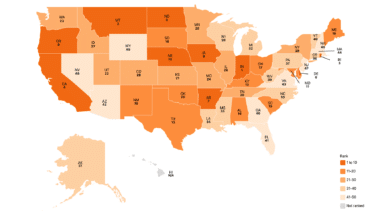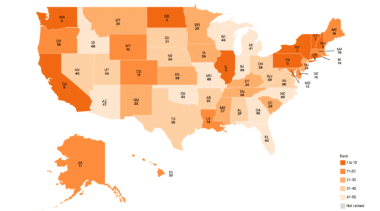Aaron Garth Smith is the director of education reform at Reason Foundation.
Smith works extensively on education finance policy and his writing has appeared in dozens of outlets including National Review, The Hill, and Education Week.
Smith graduated from the University of Maine with a bachelor's degree in business administration and earned a Master of Business Administration from Texas A&M University.
He is based in Phoenix, Arizona.
-
What the birth dearth means for public schools
Fewer students and increased competition will require public institutions to be dynamic and responsive.
-
Florida Amendment 1 would implement partisan elections for district school boards
Currently, school board elections in Florida are nonpartisan.
-
California taxpayers spent $4 billion on 401,000 students no longer in the state’s public schools
The Los Angeles Unified School District (LAUSD) collected $508 million for 50,400 ghost students in the 2022-23 school year.
-
The cost of state hold harmless policies in K-12 education
With widespread public school enrollment losses in the wake of the COVID-19 pandemic, the financial costs of some hold harmless policies have increased exponentially.
-
Four takeaways from the U.S. Census Bureau’s latest school finance data
With federal data from the 2022 school year now available, policymakers can better grasp how the COVID-19 pandemic affected public school budgets.
-
With federal pandemic aid expiring, Florida shows states how to cost-effectively boost student achievement
Unlike in most states, public schools in Florida don’t have a monopoly over students and their funding.
-
Public education at a crossroads: A comprehensive look at K-12 resources and outcomes
Examining key education spending, enrollment, staffing, and student performance data over the past two decades in all 50 states.
-
Five key trends in education spending, teacher salaries, staffing and test scores
Total inflation-adjusted education spending increased by 25% per student while average teacher salaries fell by 0.6% from 2002 to 2020.
-
Public education at a crossroads: K-12 education revenue and expenditure trends 2002-2020
Nationwide, inflation-adjusted public school revenues grew from $12,852 per student in 2002 to $16,065 per student in 2020.
-
Public education at a crossroads: Enrollment, staffing, and teacher salary trends 2002-2020
Nationwide, inflation-adjusted average teacher salaries fell by 0.6% between 2002 and 2020 with a total of 26 states seeing declines.
-
Public education at a crossroads: Math and reading outcomes (low-income students only)
Between 2003 and 2019, the average U.S. 4th grade NAEP math score for free and reduced-price lunch eligible students increased by seven points.
-
Public education at a crossroads: Math and reading outcomes (all students)
Between 2003 and 2019, the average U.S. 8th-grade NAEP reading score was flat. The average 8th-grade NAEP math score increased by four points.
-
Public education at a crossroads: Education spending data for all 50 states 2002-2020
Examining every state's K-12 public education spending, staffing and enrollment levels, teacher salaries and more.
-
Homeschooling is on the rise, even as the pandemic recedes
As of May 2023, 85% of students are enrolled in public schools, 9.6% attend private schools, and 5.4% are homeschooled.
-
How K-12 education is funded
Funding for K-12 public education is a shared responsibility between federal, state, and local governments.
-
Pennsylvania public schools need funding reform, not more money
Data show Pennsylvania schools are well funded. But how this funding gets to students is a problem.
-
How state education funding formulas work
Funding formulas collect and distribute education dollars to schools.
-
Public education funding without boundaries: How to get K-12 dollars to follow open enrollment students
How to ensure state and local education funds flow seamlessly across district boundaries.


















